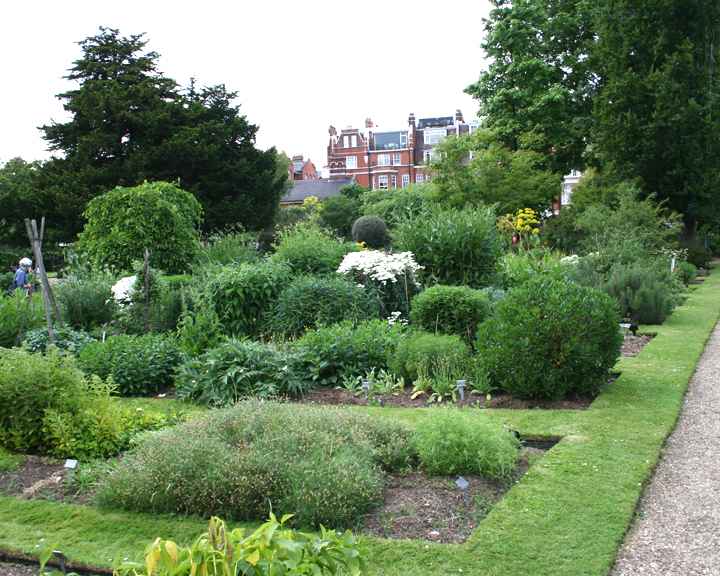|
Physic (other)
Physic may refer to: * The study or practice of medicine * A substance administered as medicine, or the medicinal plant from which it is extracted: ** '' Gillenia stipulata'', a plant known commonly as Indian physic ** ''Jatropha'', a genus of plants commonly known as the physic nut ** '' Veronicastrum virginicum'', a plant known commonly as Culver's physic * Physic garden A physic garden is a type of herb garden with medicinal plants. Botanical gardens developed from them. History Modern botanical gardens were preceded by medieval physic gardens, often monastic gardens, that existed by 800 at least. Gardens of ..., a type of herb garden with medicinal plants See also * Physics (other) * Regius Professor of Physic (other) * Regius Professor of Medicine (other) {{disambiguation ... [...More Info...] [...Related Items...] OR: [Wikipedia] [Google] [Baidu] |
Medicine
Medicine is the science and practice of caring for a patient, managing the diagnosis, prognosis, prevention, treatment, palliation of their injury or disease, and promoting their health. Medicine encompasses a variety of health care practices evolved to maintain and restore health by the prevention and treatment of illness. Contemporary medicine applies biomedical sciences, biomedical research, genetics, and medical technology to diagnose, treat, and prevent injury and disease, typically through pharmaceuticals or surgery, but also through therapies as diverse as psychotherapy, external splints and traction, medical devices, biologics, and ionizing radiation, amongst others. Medicine has been practiced since prehistoric times, and for most of this time it was an art (an area of skill and knowledge), frequently having connections to the religious and philosophical beliefs of local culture. For example, a medicine man would apply herbs and say prayers for healing, o ... [...More Info...] [...Related Items...] OR: [Wikipedia] [Google] [Baidu] |
Medicinal Plant
Medicinal plants, also called medicinal herbs, have been discovered and used in traditional medicine practices since prehistoric times. Plants synthesize hundreds of chemical compounds for various functions, including Plant defense against herbivory, defense and protection against insects, fungi, Plant disease resistance, diseases, and herbivorous mammals. The earliest historical records of herbs are found from the Sumerian civilization, where hundreds of medicinal plants including opium are listed on clay tablets, c. 3000 BC. The Ebers Papyrus from ancient Egypt, c. 1550 BC, describes over 850 plant medicines. The Greek physician Pedanius Dioscorides, Dioscorides, who worked in the Roman army, documented over 1000 recipes for medicines using over 600 medicinal plants in ''De materia medica'', c. 60 AD; this formed the basis of pharmacopoeias for some 1500 years. Drug research sometimes makes use of ethnobotany to search for pharmacologically active substances, and this approac ... [...More Info...] [...Related Items...] OR: [Wikipedia] [Google] [Baidu] |
Gillenia Stipulata
''Gillenia stipulata'', or American ipecac, is an herbacious perennial plant in the genus ''Gillenia'', in the family Rosaceae Rosaceae (), the rose family, is a medium-sized family of flowering plants that includes 4,828 known species in 91 genera. The name is derived from the type genus ''Rosa''. Among the most species-rich genera are ''Alchemilla'' (270), ''Sorbus ..., native to the United States from Texas to the west and south, New York to the North, and North Carolina to the east. The species grows in dry uplands and open woods, usually on acidic soils. It reaches a height of about and has white flowers with 5 very narrow petals spaced widely apart. References stipulata Flora of the Northeastern United States Flora of the Southeastern United States Flora of the Great Lakes region (North America) Flora of the United States Taxa named by Gotthilf Heinrich Ernst Muhlenberg Flora without expected TNC conservation status {{Amygdaloideae-stub ... [...More Info...] [...Related Items...] OR: [Wikipedia] [Google] [Baidu] |
Jatropha
''Jatropha'' is a genus of flowering plants in the spurge family, Euphorbiaceae. The name is derived from the Greek words ἰατρός (''iatros''), meaning "physician", and τροφή (''trophe''), meaning "nutrition", hence the common name physic nut. Another common name is nettlespurge. It contains approximately 170 species of succulent plants, shrubs and trees (some are deciduous, like ''Jatropha curcas''). Most of these are native to the Americas, with 66 species found in the Old World. Plants produce separate male and female flowers. As with many members of the family Euphorbiaceae, ''Jatropha'' contains compounds that are highly toxic. ''Jatropha'' species have traditionally been used in basketmaking, tanning and dye production. In the 2000s, one species, ''Jatropha curcas'', generated interest as an oil crop for biodiesel production and also medicinal importance when used as lamp oil; native Mexicans in the Veracruz area developed by selective breeding a ''Jatropha ... [...More Info...] [...Related Items...] OR: [Wikipedia] [Google] [Baidu] |
Veronicastrum Virginicum
''Veronicastrum virginicum'', or Culver's root, is a species of flowering plant in the plantain family, Plantaginaceae. It is native to the eastern United States and south-eastern Canada. Growing to tall by broad, it is an erect herbaceous perennial with slender racemes of white or occasionally pink or purple flowers in summer. Names and etymology Other names and variants include Culver's-root, Culverphysic, Culver's physic, black root. The Latin specific epithet ''virginicum'' means "of Virginia", referring to a historic definition covering the entire eastern USA and southeastern Canada, (which roughly corresponds to its current distribution). The name "Culver's root" derives from a certain Dr. Culver who was a pioneer physician of the 18th century and used its bitter roots for purgative purposes. Description The stems are hairless and usually unbranched. The leaves are serrated and arranged in whorls of 3-7 around the stem. The inflorescence is erect with slender and spike-li ... [...More Info...] [...Related Items...] OR: [Wikipedia] [Google] [Baidu] |
Physic Garden
A physic garden is a type of herb garden with medicinal plants. Botanical gardens developed from them. History Modern botanical gardens were preceded by medieval physic gardens, often monastic gardens, that existed by 800 at least. Gardens of this time included various sections including one for medicinal plants called the or . Pope Nicholas V set aside part of the Vatican grounds in 1447 for a garden of medicinal plants that were used to promote the teaching of botany, and this was a forerunner to the academic botanical gardens at Padua and Pisa established in the 1540s. Certainly the founding of many early botanic gardens was instigated by members of the medical profession. The naturalist William Turner established physic gardens at Cologne, Wells, and Kew; he also wrote to Lord Burleigh recommending that a physic garden be established at Cambridge University with himself at its head. The 1597 ''Herball, or Generall Historie of Plantes'' by herbalist John Gerard was said t ... [...More Info...] [...Related Items...] OR: [Wikipedia] [Google] [Baidu] |
Physics (other)
Physics is a natural science that studies matter and the forces that act upon it. Physics may also refer to: Journals and magazines * ''Physics'' (American Physical Society journal), former name of the ''Journal of Applied Physics'', published by the American Physical Society * ''Physics'' (Chinese Physical Society journal), or ''Wuli '', published by the Chinese Physical Society * ''Physics'' (magazine), published by the American Physical Society * ''Physics'' (MDPI journal), published by MDPI * ''Physics Physique Физика'', a small journal that ran from 1964 to 1968 published by Physics Publishing, often simply referred to as ''Physics'' Other uses * ''Physics'' (Aristotle), a key text in the philosophy of Aristotle * Physics (band), an American rock music group * Aristotelian physics, the natural science described in the works of Aristotle * Theoretical physics * PhysX, a physics engine for computer games made by Nvidia See also * * * Physic (other) * ... [...More Info...] [...Related Items...] OR: [Wikipedia] [Google] [Baidu] |
Regius Professor Of Physic (other)
Regius Professor of Physic may refer to: *Regius Professor of Physic (Cambridge), a professorship at the University of Cambridge *Regius Professor of Physic (Dublin), a professorship at the University of Dublin, Trinity College *Regius Professor of Medicine (Oxford) The Regius Professor of Medicine is an appointment held at the University of Oxford. The chair was founded by Henry VIII of England by 1546, and until the 20th century the title was Regius Professor of Physic. Henry VIII established five Regius Pr ... (formerly the Regius Professor of Physic), a professorship at the University of Oxford See also * Regius Professor of Medicine (other) {{disambig ... [...More Info...] [...Related Items...] OR: [Wikipedia] [Google] [Baidu] |



